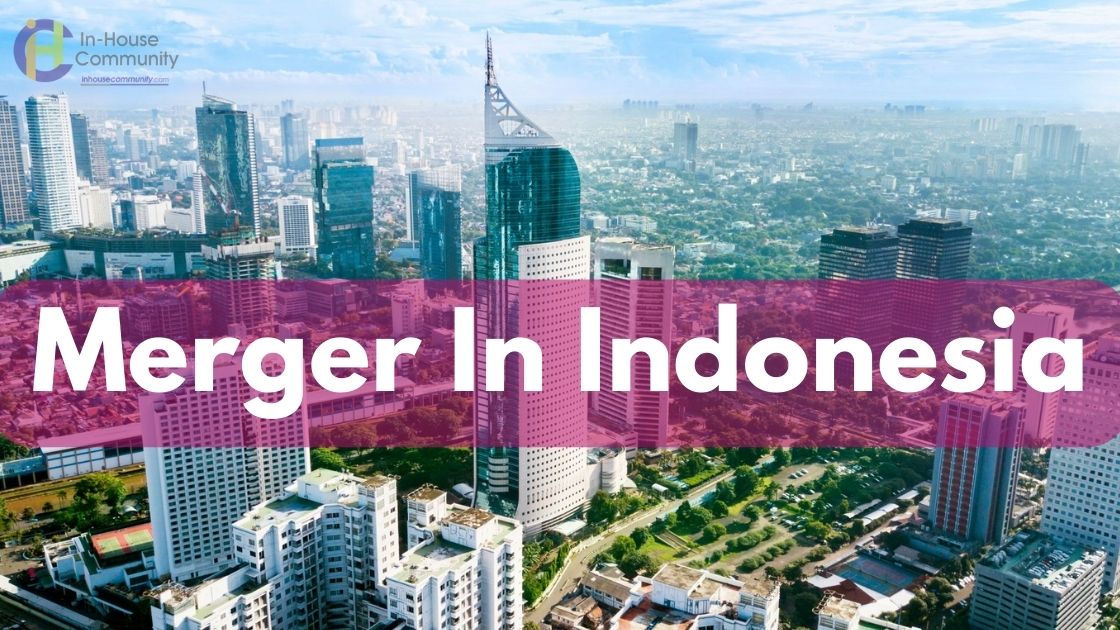 Presidential Regulation No. 44 of 2016 regarding the List of Business Fields That Are Closed and Business Fields That Are Conditionally Open for Investment (the 2016 Negative Investment List or 2016 DNI) replaces the 2014 Negative Investment List or 2014 DNI, and was made public on May 24, 2016. The 2016 Negative Investment List refers to business lines and code numbers set forth in the Indonesian Standard Industrial Classification of 2015 (the KBLI).The 2016 Negative Investment List liberalises some areas of foreign investment in Indonesia, including foreign investment from ASEAN countries. However, it is also true that the 2016 DNI does not contain the dramatic changes that had been anticipated by some members of the foreign investment community. Fundamental principle of the DNI Pursuant to Article 3 and Article 1(2) of the 2016 Negative Investment List, business lines that are not listed in the attachments to the 2016 DNI are deemed 100 percent open for foreign investment. There is no change in this basic concept. The 2016 Investment Negative List sets out that if a KBLI code number includes more than one business line, then a capital investment limitation stated in the 2016 Negative Investment List is applicable only to the business line that is expressly mentioned. For example, KBLI Code No. 70209 covers “other management consultancy businesses”. The 2016 DNI specifically refers to this KBLI code number and horticulture development consulting, which is limited to a maximum of 30 percent foreign investment. That foreign capital investment limitation applies only to horticulture development consulting and not to other types of consulting businesses. Grandfather provisions Policies established by the 2016 DNI Mergers, acquisitions and consolidations Article 9 of the 2016 DNI lays out special requirements for mergers, acquisitions and consolidations: in the case of a merger, the limitation on foreign ownership is that which is contained in the surviving company’s principle licence or business licence; in the case of an acquisition, the relevant limit on foreign ownership is that in the principle license or business license of the acquired company; and for a consolidation, the foreign capital limit is that which the 2016 DNI specifies for a new company. The result of these rules is that the only company that needs to be concerned about 2016 DNI limits on foreign capital is the consolidated company, which is a new company. In the case of a merger or acquisition, the 2016 DNI will have no adverse effects on the foreign capital limits, but if the 2016 DNI is more advantageous than the limits contained in their business licence, the foreign investor can apply for an increase. This provision is identical to the 2014 DNI, except in the case of acquisitions. In the 2014 DNI, the foreign capital limit was that of the acquiring company. We believe such change was necessary to clarify that when an acquisition occurs, neither the acquiring company nor the acquired company needs to change their capital ownership. Advantageous provisions Article 13 provides that if the 2016 DNI has provisions that are more advantageous to the foreign investor than those it now has, it is entitled to the more advantageous provisions and can apply to the BKPM to obtain them. ––––––––––––– |
Indonesia
Related Articles by Firm
Cryptoassets in Indonesia: Regulation Clearing Way for Trading of 229 Cryptoassets Issued
Indonesia’s Commodity Futures Trading Supervisory Body (Badan Pengawas Perdagangan Berjangka Komoditi or “Bappebti”) has issued the long-awaited list of cryptoassets that can be legally traded in Indonesia.
Indonesian government imposes VAT on imported digital goods and services
The tax particularly targets intangible goods and services provided by foreign tech companies that lack a physical presence in Indonesia.
Revisiting the Indonesian Language Law
Indonesia’s Law No. 24 of 2009 regarding the National Flag, Language, Emblem and Anthem (the Language Law) was very likely ...
Indonesia Update
New Body Set Up to Resolve Disputes in the Construction Sector; and a Change to the Mediation Process ...
Indonesia’s Anti-Monopoly Law: Changes Ahead?
Since its enactment in 1999, Indonesia's Anti-Monopoly Law has never been amended. The New Anti-Monopoly Law has been prioritized for enactment by the Government of Indonesia. Here's a look at some proposed major changes.
Non-compete agreements and protecting confidential information
Indonesian labour and employment laws do not expressly impose or regulate non-competition obligations ...
Indonesian regulatory framework for real estate investment funds
In late 2015, the Indonesian Minister of Finance issued Regulation No. 200/PMK.03/2015 regarding Tax Treatment of Taxpayers and Taxable Entrepreneurs ...
Indonesia Widens Door to Foreign Investment
Indonesia released its tenth economic policy package on February 12, 2016, with a focus on boosting foreign direct investment and protecting small and medium enterprises and cooperatives.
Indonesian Import License Regulations
The Indonesian Minister of Trade issued two new regulations which amended importation guidelines effective 1 January 2016.
Ownership of homes or residences by foreigners in Indonesia
Indonesia issued Government Regulation No. 103 of 2015 regarding the Ownership of Homes or Residences by Foreigners Residing in Indonesia ...
When employees leave: non-compete agreements and protecting confidential information
Indonesian labour and employment laws do not expressly impose or regulate non-competition obligations of employees with the exception of the Chief Representative ...
New regulations bring big changes to the Indonesian manpower sector
Two recently released regulations have introduced important changes to the Indonesian manpower sector. While the changes should generally be welcomed by the business ...
Update: Guide to Background Checks in Indonesia
Background checks on employees are not expressly regulated by Indonesian employment laws but certain background checks are subject to the applicant or employee's consent.
Foreign investment restrictions in Indonesia
Restrictions on foreign shareholders in Indonesia are set out in the most recent Negative Investment List, contained in Presidential ...
New Manpower Regulation Eliminates Controversial Work Permit Requirements in Indonesia
Indonesia eases requirements for work permits of expatriates working in the country.
Establishing a presence from abroad
The most common option for an overseas company as a foreign investor to establish a presence in Indonesia is by setting up a limited liability company (Perseroan Terbatas or PT) with foreign ownership ...
Regulatory framework for insurance business
The main legislation for insurance and reinsurance business in Indonesia is the newly enacted Insurance Law, issued on October 17, 2014. The new Insurance Law ...
Indonesia: New Manpower Regulation
Foreign domiciled directors and commissioners must have Indonesian work permit ...
Indonesian Rules on E-Signatures
E-signatures in Indonesia are regulated by Law No. 11 of 2008 regarding electronic information and transactions (Law No. 11/2008) and Government Regulation No. 82 of 2012 regarding the implementation ...
Negative investment list vs. cabotage principle
In furtherance of Indonesia’s commitment to welcome the implementation of the ASEAN Economic Community (AEC) in 2015, ...
Local Authority Curbed in Indonesian Mining Sector
The Indonesian Government appears to be getting serious about stripping local authorities of the power to issue mining licenses.
Mandatory use of Rupiah in Indonesia
Indonesia’s central bank, Bank Indonesia (BI), recently issued BI Regulation No. 17/3/PBI/2015 regarding the mandatory use …
Indonesia: New Regulation on Public-Private Partnerships (PPP)
Public-private partnerships (“PPPs”) interest infrastructure investors in Indonesia for a number of reasons ...
Compliance road map for companies
Compliance is an important issue for foreign investment companies doing business in Indonesia. As international organisations, foreign investment companies are not only …
Food export regulations and licences
Export activities in Indonesia can be carried out by individuals, institutions and business entities. Export goods are classified as free export goods, which are goods that have no restrictions or prohibitions on …
Franchising rules and regulations
With a population of over 250 million, Indonesia is an attractive country for investors, particularly those interested in the distribution, retail and franchise sectors. …
Indonesia Employment Law: Quarterly Review
Update for the 4th quarter of 2014 including: Increased Protection for Outsourced Workers; New Rules on Hiring Expatriates; and Regulations for those Employed in Oil and Natural Gas Business Activities...
New Indonesian Geothermal Energy Law
Indonesia is one of the world’s most volcanically active countries and among the countries with the greatest geothermal energy potential. Dwindling production of traditional energy …
Foreign investment in Indonesian real estate
Indonesia’s Agrarian Law provides that foreigners can only acquire right to use (hak pakai) title for land if they reside in Indonesia. If foreign investors wish to engage in …
Employment Law: Hiring expats, holidays and more
The Indonesian Government has issued a Regulation on the employment of foreign workers and the implementation of education and training programs for Indonesian companion employees. Presidential …
New Negative List Introduces Changes to Health Investment in Indonesia
The Indonesian Government has released a new list of business fields that are closed to investment and business fields that are conditionally open to investment …
Indonesian-language label requirements
The Minister of Trade has updated Regulation No. 67/M-DAG/PER/11/2013 regarding the Obligation to Affix Indonesian-Language Labels on Goods with the issuance of Minister of Trade Regulation No. 10/M-DAG/PER/1/2014 …
Corporate liability for corruption
Anti-corruption compliance is rightly a focus of companies operating in Indonesia. One of the more interesting questions for such companies, particularly foreign investment companies, is whether the company …
Indonesia’s New Negative Investment List
The Indonesian Government has issued a New Negative List that determines which business fields are open, fully or partially with conditions, to investment, including foreign investment. The New Negative List, issued …
New Trade Law and its effect on business
Indonesia’s House of Representatives (Dewan Perwakilan Rakyat or DPR) recently passed into law a long-awaited trade bill. The new Trade Law will act as an underlying regulation for other trade-related …
Processing minerals for export now mandatory
After a long and contentious discussion involving many interested parties, the Government of Indonesia issued a regulation that bans the …
Indonesia’s Language Law and business agreements
In a landmark decision on June 20th, 2013, the West Jakarta District Court annulled a Loan Agreement because it was executed in English …
Indonesian Court Annuls Loan Agreement on Language Law: What Does It Mean for Your Agreements?
In a landmark decision on June 20, 2013, the West Jakarta District Court annulled a Loan Agreement entered into between a local borrower and an offshore lender because it was executed in English only ...
Keeping up with shifting foreign investment rules
Less than six months after issuing new investment guidelines and procedures, Indonesia’s Capital Investment Coordinating Board (BKPM) has …
New divestment rules for mining companies
On September 13th, 2013, the Minister of Energy and Mineral Resources (MEMR) issued MEMR Regulation No. 27 of 2013 regarding …
New import rules for cell phones in Indonesia
Indonesia’s Minister of Trade has issued a new regulation that specifically governs the importation of, among other items, cellular telephones …
BKPM introduces new investment rules in Indonesia
Indonesia’s Capital Investment Coordinating Board (BKPM) has issued BKPM Regulation No. 5 of 2013 regarding Guidelines and Procedures …
Related Articles
Related Articles by Jurisdiction
New rules for Indonesia’s banking industry
Bank Indonesia, the central bank, has issued a flurry of recent regulations aimed at strengthening the country’s banking system and …
Latest Articles



































 SSEK Legal Consultants
SSEK Legal Consultants Rusmaini Lenggogeni
Rusmaini Lenggogeni Denny Rahmansyah
Denny Rahmansyah







